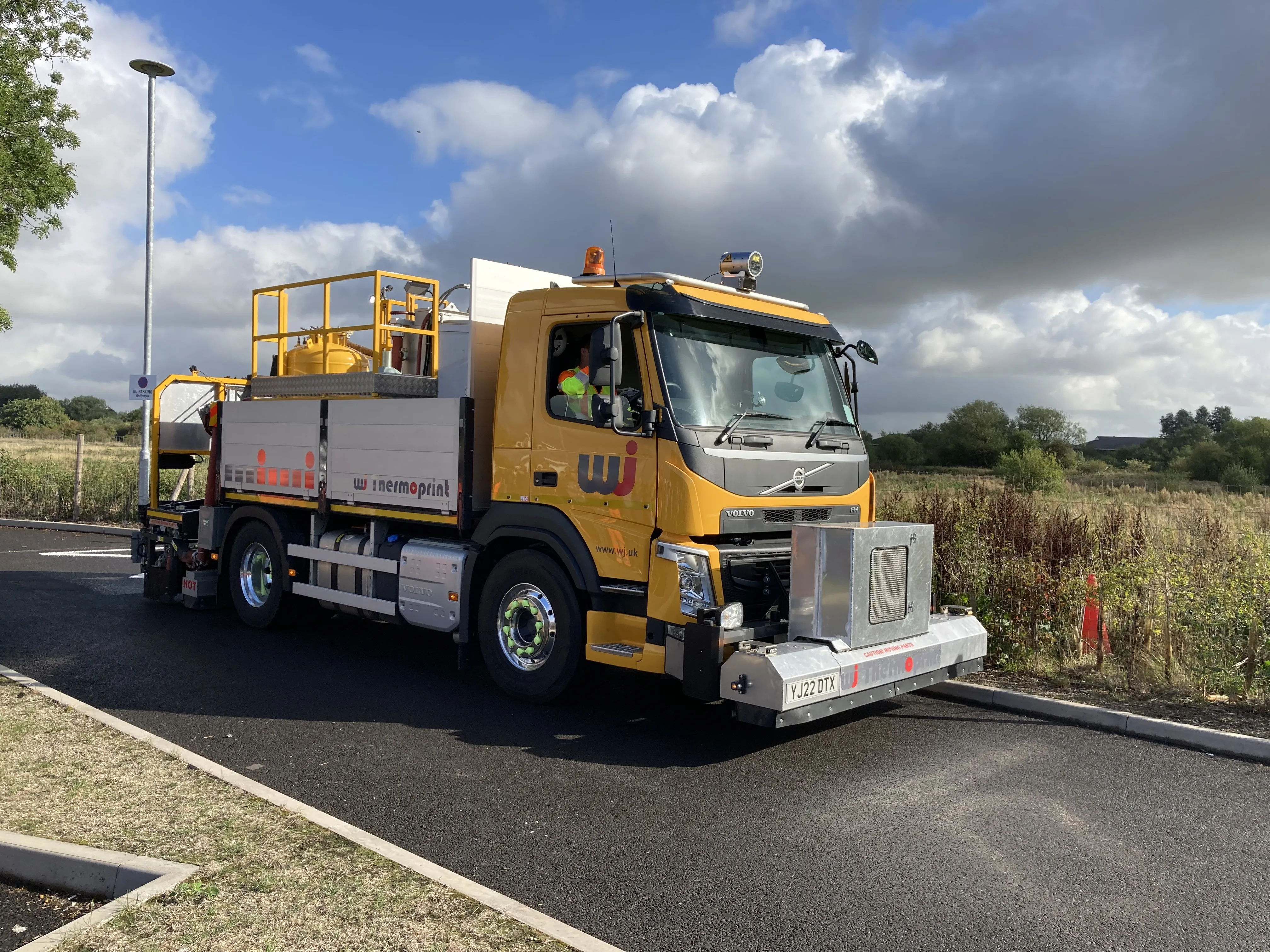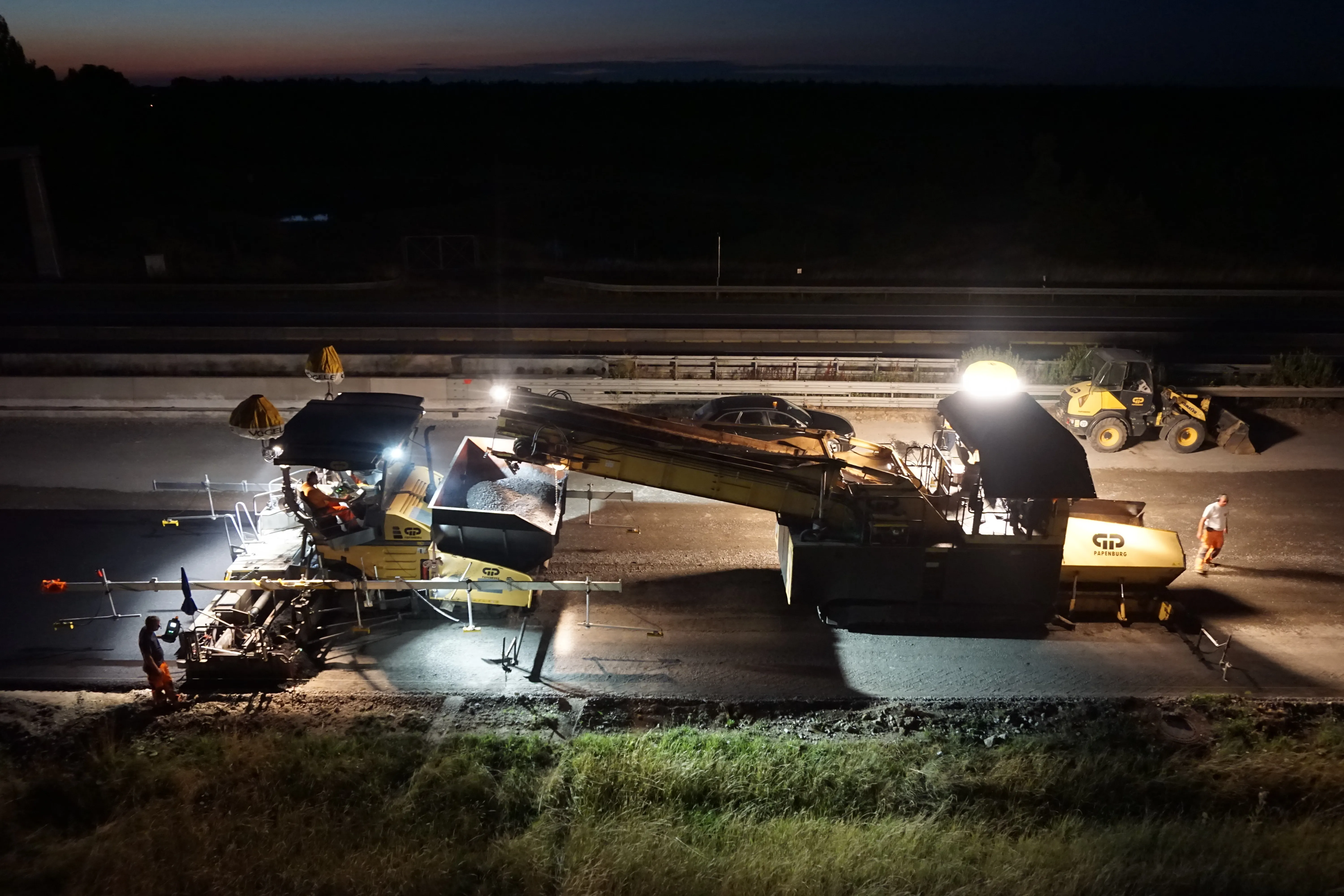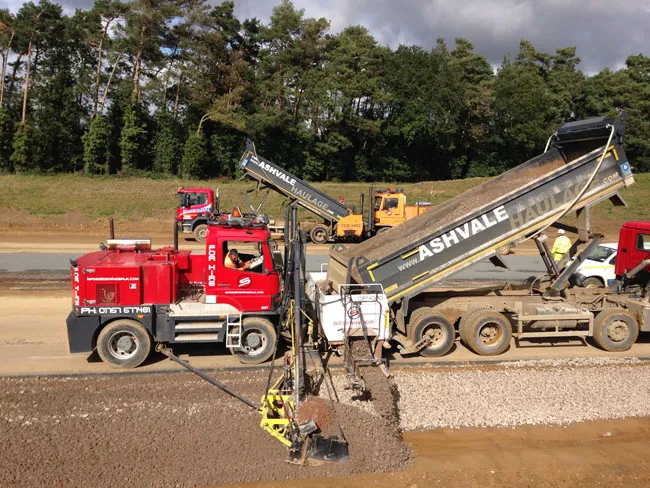
Following trials on local UK roads, marking contractor WJ says it has plans to trial its ThermoPrint markings truck on the national strategic road network.
The ThermoPrint truck eliminates the need for applying thermoplastic road markings such as letters, numbers, arrows and other symbols by hand using hand-moulds. ThermoPrint has all road symbols used on the UK network programmed into its operating system, reducing the need for our operatives to lay the markings by hand.
The technology also has the potential to scan existing road markings and automatically match them to programmed designs. Once the scanning is completed, the machine immediately relays thermoplastic to rejuvenate the markings and bring them up to standard.
Importantly, WJ says that the ThermoPrint provides much-needed protection for its operatives, who often apply road markings next to live carriageways. ThermoPrint allows the operatives to run the machine safely from the cab. Additionally, the technology delivers efficiency benefits by increasing the speed of application and potentially reducing the required traffic management in appropriate situations.
WJ worked with Norwegian road marking machine manufacturer Trysil Maskin to deliver the ThermoPrint, a UK-first machine, and based on Trysil’s trafficprinter.
WJ had ordered the machine a few years ago and the registration for use of the trafficprinter on British roads was completed in the spring of 2022. Shortly after, Trysil held a demonstration for WJ in London. As part of the demo, there was a side-by-side comparison of manual road marking and road marking using the trafficprinter; the trafficprinter had already completed five or six symbols while the manual road marker was still working on the first one.
At the time of the demonstration, Trysil noted that the company hoped that the WJ partnership was the start of a longer relationship within the UK market.









